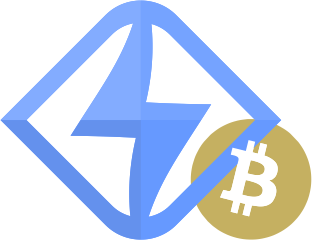Although it is rapidly expanding, the Bitcoin user base is still relatively small. It is limited for the most part to people who are at least somewhat tech-savvy. Let's face it, in its natural form, Bitcoin requires you to download a piece of software, a client like Bitcoin-Qt or MultiBit, and keep track of long strings of random characters, or addresses, which are not easily memorized, and usually require a computer just to distribute.
Physical Bitcoins do exist but they are used far less than their digital counterparts. Almost everyone who currently uses Bitcoin seems to have some knowledge about technology or science. They might not be experts, but they often know something about cryptography, programming, networking, or a similar field. These people also love to speculate about the future of Bitcoin. Many hope that one day it will be used more than dollars or euros, but is this really possible? Can your average Joe really learn to use Bitcoin regularly?
My short answer would be yes, absolutely. Just because something involves computers does not mean that Aunt Ethel can never use it. You need a computer and an Internet connection to use Facebook and even five-year-olds can do that. In fact, there are already many services in place to make the use of Bitcoin easier. Exchanges like Bitstamp make it relatively easy to obtain Bitcoins. In fact, with Coinbase, all you need is a valid bank account to get started and with the proper identification, you can buy up to 50 BTC per day, instantly. These exchanges can be used as wallets too. There is really no need to download a Bitcoin client or the entire blockchain, which can be hassles for some people.
This makes buying Bitcoins and sending them through cyberspace fairly easy, but is the cryptocurrency suitable for everyday purchases? Many people criticize Bitcoin for the fact that the blockchain, the complete record of transactions that must be stored on every single full network node, will continue to grow until it becomes unmanageable. This issue would become even worse if people began using Bitcoin every single day to buy gas and groceries, so how can we get things under control?
This problem is nothing new. Bitcoin users and developers have been anticipating it for some time and we are not unprepared. In fact, the inventor of Bitcoin, Satoshi Nakamoto, had a section called Reclaiming Disk Space in his original white paper. There is no need to explain the details of his fairly technical solution, but essentially he proposed that the oldest blocks on the chain could be compressed when necessary.
Other possible blockchain trimming methods have also been brought to light within the Bitcoin community. Some suggest adding another blockchain that would basically be equivalent to Bitcoin but would keep its own separate record of transactions. One service, Inputs.io allows you to deposit BTC to be transacted completely off the chain, but this requires users to trust a third party. Still others say it could be possible to issue a sort of fiat currency backed by Bitcoin, just like dollars were once backed by gold, but many fear that this would lead to destructive fractional reserve practices.
The specific methods are not too important though. What matters is that there are options. I think there is no reason to be concerned that cryptocurrency will ever become unusable. It will take time to develop solutions and grow the economy, but I can absolutely see Bitcoin being used by all sorts of people for everyday purchases in the future. No one can predict with complete certainty, but our world has already changed in so many ways as a result of Bitcoin, and I expect that trend to continue for some time.
 You, Me, and BTC Your Liberty & Bitcoin Podcast
You, Me, and BTC Your Liberty & Bitcoin Podcast





